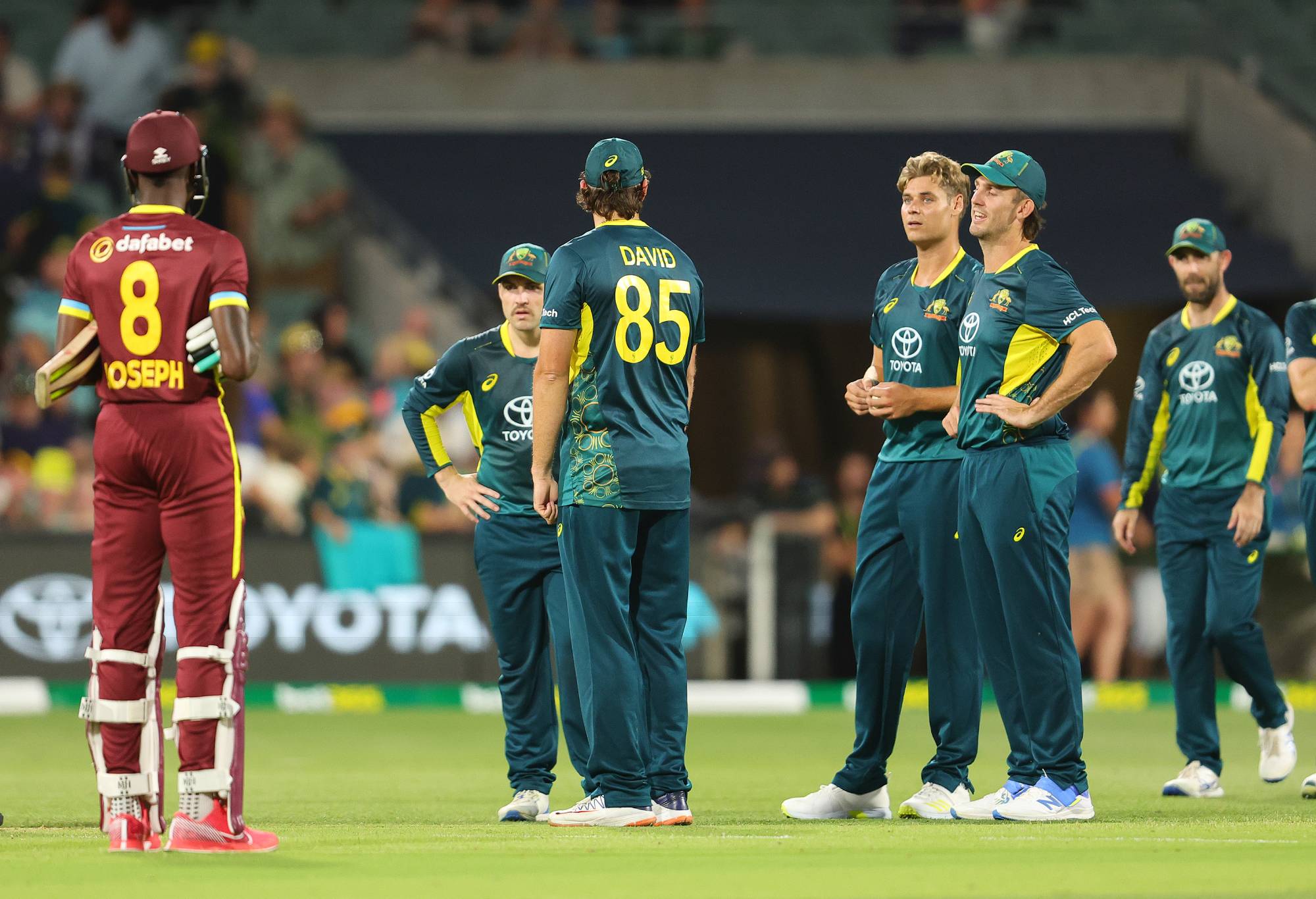‘One of those weird rules’: Why run-out was not given despite Windies batter well short of his crease

Funny game, cricket, which has now stumbled on its ‘tree in the forest’ conundrum. The age-old philosophical poser is: if a tree falls in a forest and no-one is around to hear it, does it make a sound?
Now, cricket has: if a wicket falls in a game, and the umpire doesn’t hear an appeal, does it make a dismissal?
The answer is no, according to umpire Gerard Abood. The dilemma came in Australia’s 34-run win over the West Indies in Sunday night’s T20 game in Adelaide.
West Indian batsman Alzarri Joseph hit a ball to Australian captain Mitchell Marsh at extra cover, and ran. Marsh threw at the bowler’s end stumps, where paceman Spencer Johnson collected the ball and took the bails off.
Abood didn’t hear any Australian player appeal. So he didn’t call for a third-umpire verdict.
But ground replays showed Joseph clearly short of his crease and Australia’s players began celebrating what they believed was the last wicket of the game. But Abood was unmoved.
“There was no appeal,” Abood told the Australians.
The Australians were incredulous, Tim David particularly so, telling Abood: “I appealed. This is a joke.”
A host of Australians converged on Abood in protest.
“Guys, we’re getting into really poor territory,” the umpire told the circling Australians. “Get on with the game.”
As the Australians stood in disbelief, the umpire stood by his decision not to make a decision.
“The umpire deemed that no-one had appealed,” Australian century-maker Glenn Maxwell said.
Mitchell Marsh stands with his team as umpire Gerard Abood explains the run out decision for Alzarri Joseph. (Photo by Sarah Reed/Getty Images)
“And there was a few of us that thought we did appeal. That was basically just where the confusion is.
“And to be fair, I understand, it wasn’t like a screaming appeal from everyone. But it was probably one of those things where you sort of just expect it to go up to the third umpire.
“We thought it was pretty close, and there were a few of us sort of putting their hands up. And basically we stopped, thinking that he (Abood) had sent it upstairs.”
Abood hadn’t. But players watched the replay on Adelaide Oval’s large screens thinking he had.
“Everyone was turned around watching the big screen and the batter had already started walking off,” Maxwell said. “It was just confusing … just a weird one, one of those weird rules in cricket.
“We should probably just be a little bit louder with our appeals.”
Abood, by the letter of the law, was correct: if a wicket falls in cricket but an umpire doesn’t hear an appeal, it doesn’t make a dismissal.
That’s by decree of rule 31.1, which states: “Neither umpire shall give a batter out, even though he/she may be out under the laws, unless appealed to by a fielder. This shall not debar a batter who is out under any of the laws from leaving the wicket without an appeal having been made.”
